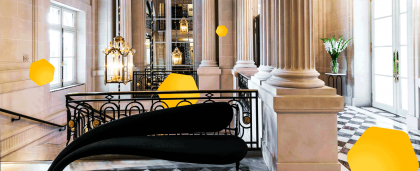1. Technologies
According to surveys, 72% of managers in the hospitality industry invested funds in technological innovation in the period from 2011 to 2016. Let’s take a look at what we really do encounter in modern hotels.
Phone instead of a key
Traditional keys are rarely found in hotels, as they have been replaced with plastic cards. Now, though, hotels have gone further and are enabling their guests to open their rooms using a phone app. The Marriott group installed such a system at its Starwood hotels in 2014, and it extended it in 2016 to Le Méridien, Westin, Sheraton, and Four Points. You can get into your room using its app in 160 hotels in 30 different countries. These include Le Méridien Parkhotel Frankfurt, The Westin Westminster, Sheraton Bloomington.

Hilton offers a similar system, and it’s popular among guests. Four million electronic keys were registered in its app in 2017.
Keys may, in fact, be done away with altogether, and rooms will recognize the guests’ faces. This technology is currently being tested in China. Given that smartphones have already learned to recognize their owners’ faces developing this technology seems logical for hotels. However, so far, we can only find such technology at the FlyZoo hotel in Hangzhou, which belongs to the tech giant Alibaba.
Robots
Hotel staff don’t have to worry about their jobs for the next few years. Robots are appearing in hotels, but you cannot fully rely on them. For now, they mostly act as a marketing ploy to pull in the guests and as a way for the hotel company to declare their allegiance to tech. Current robots are not independent. Their work is always monitored by a human, and they are not trusted with key jobs.
Robots mostly act as a marketing ploy to pull in the guests and as a way for the hotel company to declare their allegiance to tech.
In the US state of Virginia, guests are met in the Hilton McLean hotel by a robot named Connie. He tells them about the hotel’s services, local sights, and which restaurants in the vicinity to visit. Connie was developed jointly by Hilton and IBM. The companies claim that the robot is self-learning and with time, can correctly anticipate its guests’ desires and questions, like the best concierge.
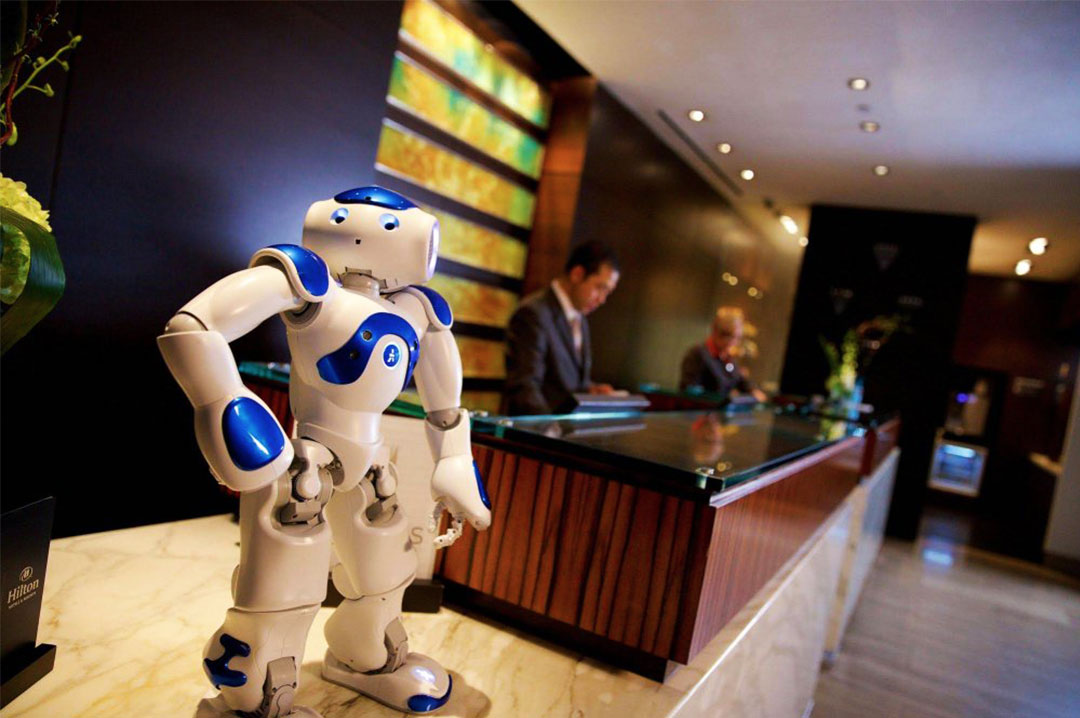
Another robot, Mario, works at the Marriott Hotel Ghent in Belgium. He performs the same function as his colleague Connie, and they even look a bit alike. However, Mario’s “parent” is a Belgian company QBMT, so the robots are unrelated.
Delivery robots work at the Aloft Cupertino and five other hotels in Silicon Valley. If a guest requests additional towels, a cup of coffee, or a chocolate bar to be brought to their room, a robot is assigned the task. Staff members place the desired item in the robot’s container and program the room number, and the robot then makes its way to the room using the lift. It doesn’t have a way to knock at the door, so once it reaches the door, it calls the room’s telephone. When the doors are opened, the robot opens its container in response. After delivery, the robot doesn’t leave immediately, in case the guest wants to take a selfie with it.
Interestingly, there are no examples yet of robots cleaning the rooms. Nobody is ready to trust robot vacuum cleaners or robot window washers. Rooms continue to be cleaned manually, even in the most advanced hotels.
Internet of things
It’s not only doors that are connected to apps, but all other objects in the room as well. In modern hotels, you can use a remote control to manage the lights, curtains, air conditioning, TV and streaming service settings, mattress’s functions, music player, and coffee machine.
In order to manage these objects, Four Seasons has been installing tablets in its rooms since 2011. While at the Sinclair Hotel in Texas (part of the Marriott group), smart mirrors were installed in its rooms in 2018. The upper part of the window additionally fulfills the function of a screen and is touch-sensitive.
The fact that this comprises a trend is further confirmed by such technologies being a focus of the digital giants. Amazon has upgraded its voice-controlled assistant Alexa and has released a special version of its smart loudspeaker for hotels.
2. Lobbies
The traditional form of a hotel includes a spacious lobby with a long check-in desk. However, that may soon be confined to the past. Hotels are beginning to transform their halls, for example, into co-working areas. On the one hand, this meets the changing needs of guests, while on the other hand, it helps the hotels to use space in a way that is more efficient financially. An impressive lobby adds status to the brand, but maintaining it may be expensive.
Long thick common tables when you enter the Ace Hotel in New York are occupied by people with laptops. They have nothing to do with the hotel staff. These are designers, startuppers, freelancers, academics, advertising agency executives, lawyers, and other professionals. Some work here constantly, while others show up from time to time to get away from the office environment. Ace has become a fashionable place for business meetings, and even candidate interviews are held here. The hotel owners say that this is just the atmosphere they targeted. Moreover, co-working aficionados don’t only make the hotel fashionable among the creative community but bring additional income. Sandwiches in the local cafes don’t lie in the displays for long, and rivers of coffee are poured.
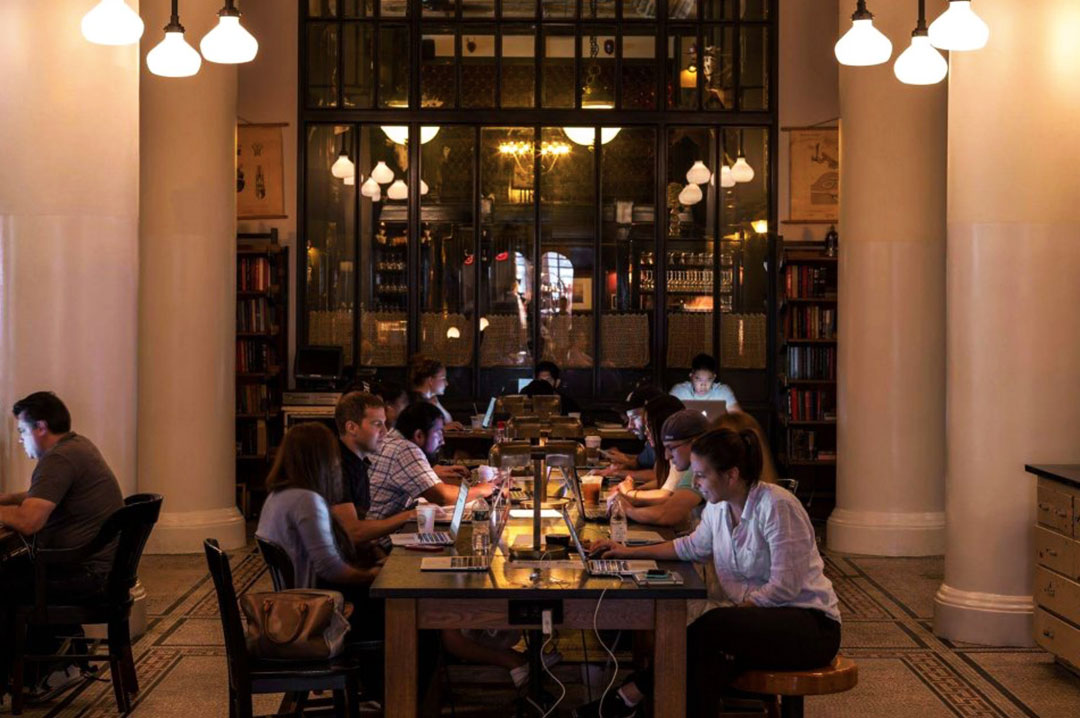
Paris’s Hotel de Crillon rejected a formal front-desk after a massive four-year refit. Instead, each guest is assigned a personal concierge. He or she meets the guests by the entrance, accompanies them immediately to their room, and handles all the check-in formalities. The freed-up space has been refurbished into cigar and cognac rooms.
The Nhow Hotel in Milan changes the design of its common spaces every few months. Its corridors and lobbies are filled with works of artists and designers on a set theme. As a result, Nhow has become a center of gravity, not only for tourists. Videos are shot here, showrooms are opened, and fashion shows organized. Moreover, the hotel becomes a platform for festivals held in the city. So the hotel not only refreshes its interior regularly but also receives rent from firms using its spaces.
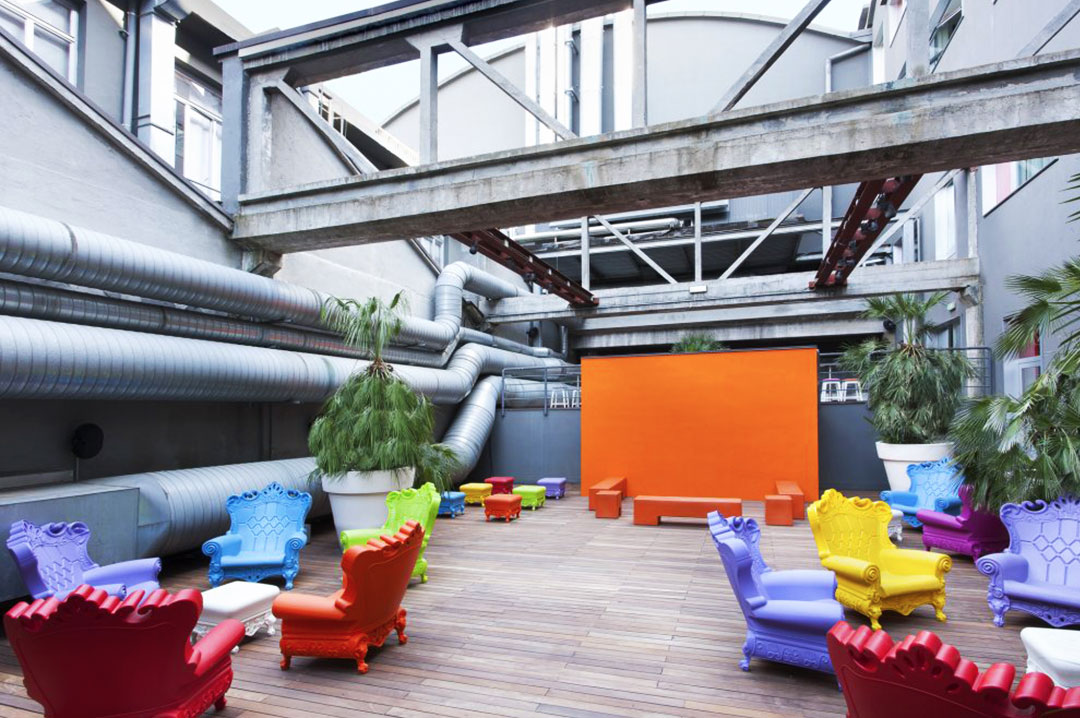
3. Healthy living
Brand manager of the Marriott luxury segment Tina Edmundson claims on the basis of a client survey that 80% of people today focus more on their physical and emotional state than three years ago. This involves not just eating properly and sport. People are also beginning to monitor the quality of their sleep and relations with nearest and dearest, and are even trying to meditate. And hotels are now attempting to adapt to meet the new needs.
Recently, the Hyatt chain carried out two big transactions in this area. In 2017 the company acquired Miraval for $375 million. This resort brand claims on its site that it tries to help guests live a balanced life. Hyatt’s second acquisition is the spa and fitness brand Exhale. Steve Haggerty, global strategic head at Hyatt, notes that Exhale stands out among its competitors in that it works not only with bodies but with minds as well.
80% of people today focus more on their physical and emotional state than three years ago.
At the Four Seasons Beverly Hills, guests can rent special “health rooms.” They differ from ordinary bedrooms due to a whole range of features. Here not only ordinary air conditioners are installed but air purifying systems that get rid not only of dust but also of allergens and microbes. The shower is equipped with filters to cleanse the water of chlorine. Instead of usual light switches, the rooms are equipped with controllers that adjust the light according to circadian rhythms during the day. This helps guests to overcome jetlag during the day and improves their sleep at night. Further, they have recorded an exclusive master class for guests on meditating delivered by popular guru Deepak Chopra.

At the end of 2019, the Beverly Hilton will offer guests 15 new health programs. These include high-intense interval training with water cooling of the body, cryotherapy, and therapy using magnetic fields. Like its rivals, Hilton is supporting the trend, hence it will supplement its physical health programs with ones to reduce stress and train the mind.
4. Ecosystems
Modern hotels not only offer guests a room to sleep in but create entire ecosystems for travelers. The aim is not only to allow the guests to sleep and eat well but to give them a unique experience from their trip. These positive emotions will hence, be associated with the hotel.
The Marriott has invested in PlacePass, a company that organizes events. As a result, Marriott guests gain access to 100,000 events in 800 cities throughout the world. You can take a trip to a sumo match in Tokyo, obtain exclusive access to the treasures of the Tower of London in the company of a Beefeater, or go on a camel ride across the desert with bedouins.
Modern hotels not only offer guests a room to sleep in but create entire ecosystems for travelers.
Research by the Waldorf Astoria shows that a third of guests don’t plan their trips before they get to the hotel. Therefore, the chain focuses heavily on services that concierges can offer guests and constantly adds to them. So a master of bathing can select herbs and oils depending on the guest’s mood or can organize a bath that will help a tired traveler to restore their strength. Meanwhile, a book-master can give you a guided tour among the city’s antique bookshops and help you get acquainted with the work of local authors.
W Hotels highlights its focus on music. W organized its own music festival, Wake Up Call in 2018. Such an event was held in its building for the first time. The chain launched its own record label in 2019. Artists will record music in the studios of its hotels in Hollywood, Barcelona, Seattle, and on Bali. Musicians can also record videos there and give live performances. The artists gain access to the hotels’ audiences, while guests obtain exclusive content through the hotels’ loyalty program. W plans in this way to strengthen its connection to its clients even when they are not traveling and not staying in hotels.
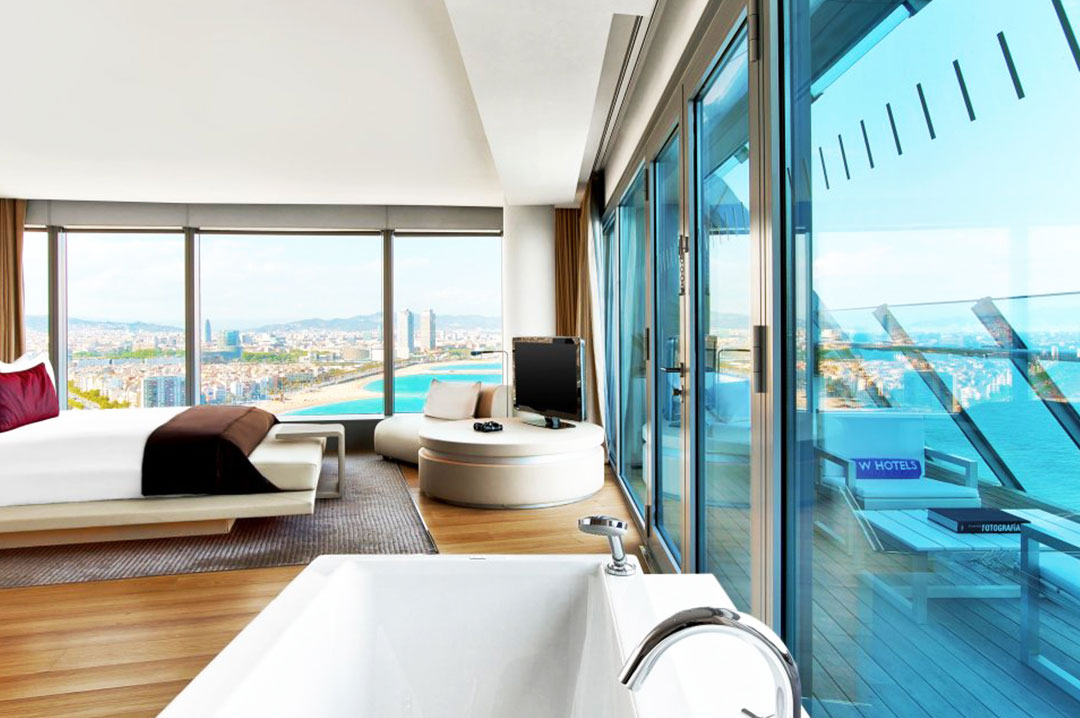
5. The environment
Research by travel agency TUI shows that a tenth of European tourists books rooms in ecological hotels. The greatest focus on the hotel’s attitude to the environment is demonstrated by Germans (17%) and the French (18%). Moreover, half of the respondents complained that hotels are not always transparent in this respect and rarely publish information on the subject.
An environmental concern often frightens companies, as this brings the specter of expenses on upgrade. However, research by Nielsen demonstrates that such expenses may be recouped not only morally but also financially. 66% of young people are willing to pay more for a product if its manufacturer takes a responsible approach to the environment.
HG Green Engage is a set of methods and ploys that enables even elderly guests to reduce energy use by 25%.
The Crowne Plaza hotel in New York has installed smart thermostats and occupancy sensors in 795 rooms. When a guest leaves the room, the heating turns off. When the guest returns, the system heats up the room to a comfortable temperature as quickly as possible. As a result, energy use has declined by 24%, allowing the hotel to save $112,182 per year. So caring for the environment turns out to be profitable.
InterContinental Hotel Group has developed an environmental program called IHG Green Engage. It’s a set of methods and ploys that enables even elderly guests to reduce energy use by 25%. Other groups are also focusing on this trend. Hilton has announced that it will reduce pollution by half by 2030.
6. Pets
It’s hard to imagine a modern student without a phone in their hand. However, research shows that young people would sooner say goodbye to their phone for a week than go without their pets. This was reported by 65% of respondents. Modern travelers are more closely attached to their pets and don’t even want to part from them during vacations. This means that more hotels will soon become pet-friendly.

Park Hyatt in Vienna gladly welcomes guests with pets. Moreover, four-legged friends are treated almost as well as their owners. It’s been said that at the request of the owners, some dogs have even been taken to the opera.
Modern travelers are more closely attached to their pets and don’t even want to part from them during vacations.
There is a special pet concierge at the Milestone Hotel in London. This member of staff gets the room ready for guests to arrive, arranging a special place for the pet appropriate to its size. Moreover, the hotel has a special pet menu. Food can be ordered to the room for them 24/7.
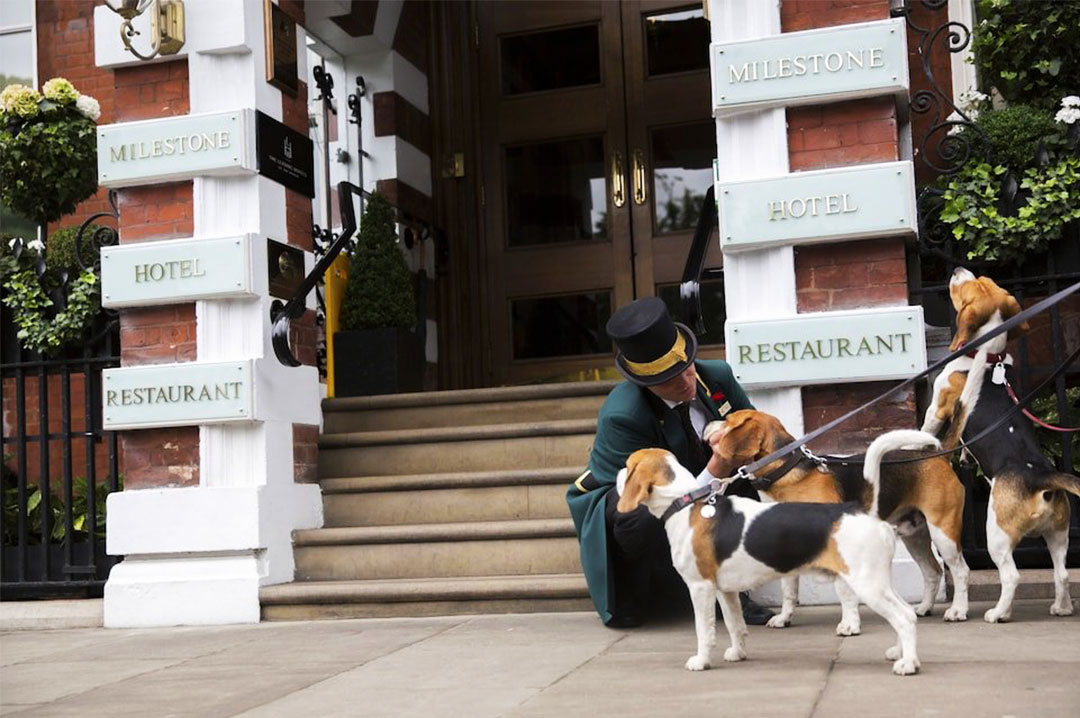
Good hotels say that their success is down to anticipating their guests’ desires. However, when guests have many desires, and they belong to all sorts of different domains, it’s very hard to meet all of them. How hotels will cope with transformation and whether they will make changes quickly enough to be called “modern” we will learn in the near future.

